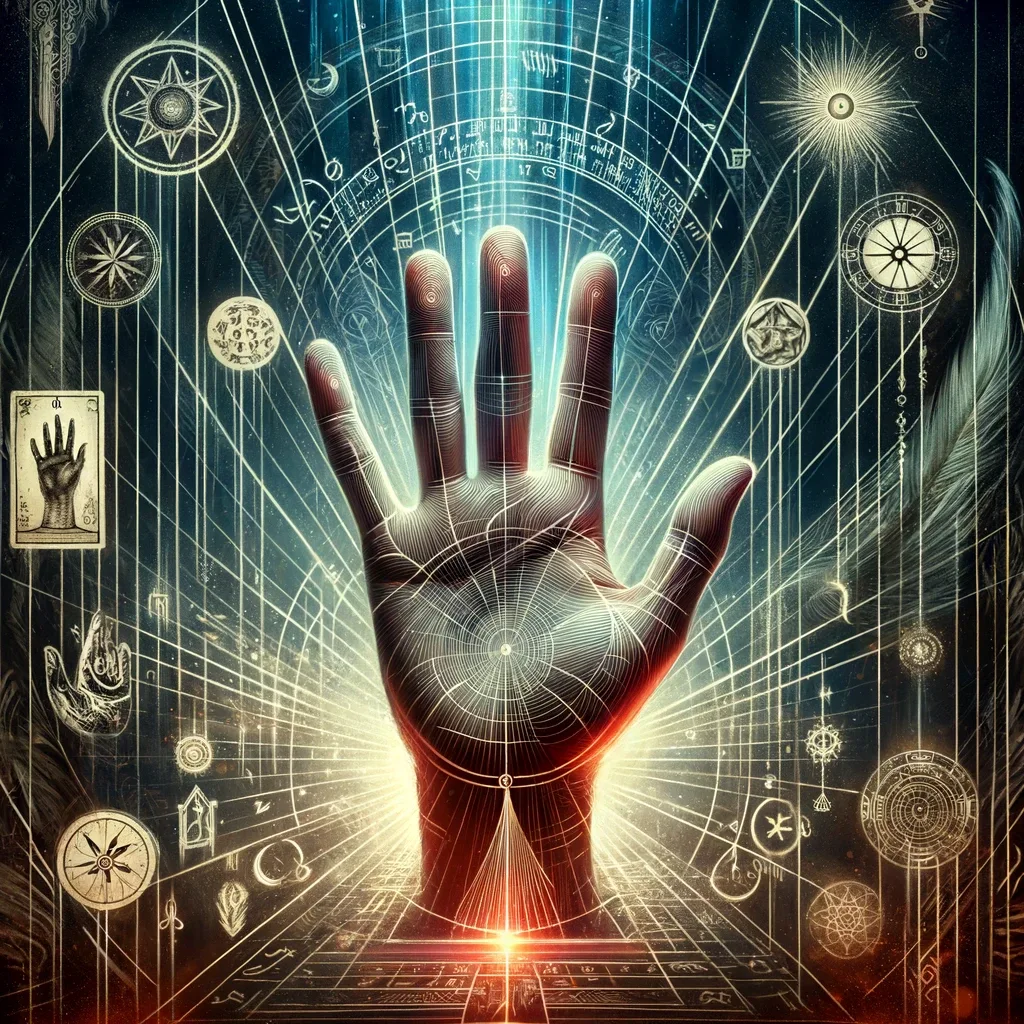
Exploring Palmistry: Is It Accurate?
Delve into the world of palmistry to discover whether this ancient practice can truly reveal your destiny or if it's a myth.
article by Nora Pennington
Palmistry's Ancient Roots
Palmistry, also known as chiromancy, has been practiced in various cultures for thousands of years. The art of interpreting the lines and features of the hand is believed by some to offer insights into an individual's character and future. Originating from ancient India, it was later adopted by the Chinese, Egyptians, and Greeks, spreading across the world as a popular form of divination. But the burning question remains: is palmistry accurate? Proponents argue that the practice is supported by empirical observations and a rich symbolic language, while skeptics view it as a pseudoscience with no basis in reality.

A Closer Look at the Practice
Palmistry involves examining various parts of the hands, such as the lines, mounts, and shapes, to extrapolate potential life outcomes and traits. Primary lines, like the heart, head, and life lines, are most frequently analyzed, each supposedly representing different aspects of life. However, the accuracy of these interpretations can be subjective. While some individuals swear by palmistry's precision, others find it to be vague and non-specific. This subjectivity leads to debates about its reliability and place in the modern world.

The Skeptical Perspective
Critics of palmistry highlight the lack of scientific evidence supporting its efficacy. They often point to the Forer effect, where individuals believe vague and general personality descriptions apply specifically to them. This could suggest why some people find palm readings eerily accurate—because the interpretations are crafted to be broad enough to resonate with anyone. Furthermore, with no consistent method for reading palms, predictions can vary significantly from one palmist to another, further challenging the practice's validity.
Personal Experience and Placebo
Despite skepticism, countless individuals report personal anecdotes where palm readings have been startlingly precise. Could this be the placebo effect in action, where simply believing in the accuracy of the reading brings a psychological benefit? It's a hypothesis that many critics propose, arguing that if an individual is told something positive, they may subconsciously act in ways that make it come true, a self-fulfilling prophecy of sorts.

Situating Palmistry in Modern Times
In today's digital age, palmistry has seen a revival, complementing trends in spirituality and self-discovery. While it may not pass the rigors of scientific scrutiny, its value might lie in its role as a reflective tool. For believers, a palm reading can foster introspection, allowing them to consider different perspectives of their life. Hence, the real accuracy of palmistry may be less about predicting the future and more about providing insight into one's own life.
Is Palmistry Accurate?
When asking if palmistry is accurate, it's vital to consider the context. If accuracy is defined by empirical, scientifically verifiable results, then palmistry might not meet the criteria. Yet, if accuracy encompasses personal truth and meaningful experiences, then for some, palmistry could be a valuable guide. Ultimately, the belief in palmistry's precision is subjective and varies greatly from person to person.
Published: 12/7/2023
Modified: 12/7/2023
More predictions
Come back here soon to learn more about yourself and your future


The Secrets Of The Palm: Is Palmistry Accurate?
Explore the mystical world of palm reading to discover if the lines on your hands can truly reveal your destiny.


Guiding Hands: How Palmistry Reveals Life's Mysteries
Explore the ancient art of palmistry and learn how reading the lines on your hand can provide insight into your life's journey.


Life Lines: Mastering the Fundamentals of Palmistry
Explore the age-old practice of palmistry and learn how it may reveal the secrets of your personality and fate.